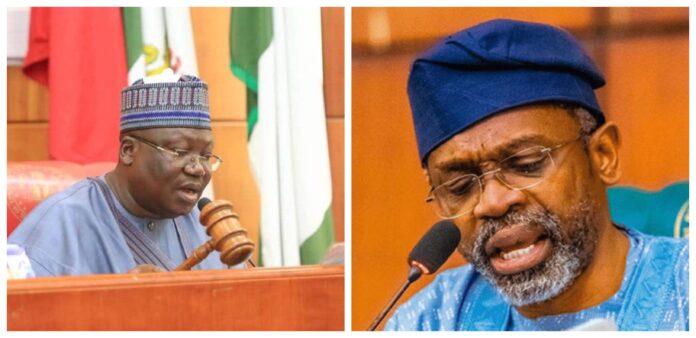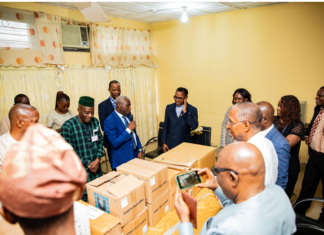End injustice and promote fairness, equity
By Emmanuel Ogebe
The nomination of Judge Ketanji Brown as the first black woman on the United States Supreme Court is an opportunity to X-ray the status of Nigeria’s own female justices especially in light of dedicating a day to women in March.
On the surface it looks impressive that Nigeria has produced in 60 years of independence at least eight black female Justices of the Supreme Court (JSC) while the US has not produced one black female justice in over 200 years.
In fact, Nigeria has produced more female JSC than the total number of female JSC in the US!
In the epic pantheon of judicial juggernauts, the eight Nigerian women ever to attain the status of JSC are:
- Alooma Mukhtar (Chief Justice of Nigeria, CJN)
- Oyelola Adekeye
- Mary Odili
- Clara Ogunbiyi
- Kudirat Kekere-Ekun
- Amina Augie
- Uwani Abba-Aji
- Helen Ogunwumiju
Mukhtar became the first woman JSC and ultimately the first and only female CJN so far.
Odili is the first female from the South East to attain this exalted JSC position, Mukhtar was the first from the North. Adekeye was the first from the South West.
Out of the current seven most senior JSC, three are women. This means in any constitutional matter or case warranting a seven-judge panel, almost half would be women if empaneled by order of seniority.
This gives women over 40 per cent representation in the judicial hearing of constitutional matters affecting all Nigerians and is above the 35 per cent gender quota requested by Nigerian women into appointive political positions.
__________________________________________________________________
Related articles:
Buhari’s Channels interview confirms his failure, says Ogebe
US team launches projects in honour of Leah Sharibu
Buhari’s attack on Kukah confirms religious bias, says US Nigeria Law Group
Odili’s home invasion is Buhari’s banditocrary, says USNLG
__________________________________________________________________
Women professionally capable as men
Of greater note is that this judicial gender representation is purely on professional merit and not simply affirmative action.
Indeed, as research by the Kudirat Institute for Nigerian Democracy (KIND) reveals, of the three arms of government, the judiciary – which is merit-based – has a higher percentage of women than the executive or legislature which are politically based.
In effect, KIND implies that but for political factors, left to professional performance, Nigerian women are capable of achieving equal or comparable representation with men.
Against this backdrop, the recent rejection of gender parity bills by the National Assembly (NASS) elicited a strong reaction from Women In Politics Group (WIPG), Makurdi.
“It is particularly sad that in a month globally dedicated to celebrating women worldwide, our NASS has chosen to deny women basic human rights,” WIPG said in a statement issued on 1 March.
“The proposed gender bills in the 5th Constitution Alteration Bills that were all rejected are bills targeted at addressing the current gender imbalance across the legislative arm of governments across the country whilst reducing the under-representation of women in political office.
“The men of the 9th NASS have reinforced the discrimination and political bias against women as enshrined in the 1999 Constitution by:
“Denying citizenship to a foreign-born husband of a Nigerian woman. (While it allows Nigerian men’s foreign-born wives to be awarded automatic citizenship).
“Denying Nigerian women indigeneity through marriage.
“Denying 35% appointed positions for women and settling for 20%.”
Unjust treatment of female judges in the South East
Incidentally, Odili – now the most senior JSC after CJN Ibrahim Muhammad – doubles as the first woman representing through marriage both the South East and South South, which constitute two-thirds of Southern Nigeria.
Technically speaking, although there are currently two female JSC from the Igbo ethnic group, neither represents her state or the South East.
Odili, the second female judge to rise to number two position on the Supreme Court, is from Imo but married to a man from Rivers where she served in the judiciary and rose through the ranks to the apex court.
Augie, also from Imo, is married to a man from Kebbi and served in the Sokoto judiciary before rising to the Supreme Court.
Therefore, NO female judge has risen to the Supreme Court from the South East judiciary or by virtue of federal character representing the South East. Both female Igbo justices rose by their adoptive marital states.
This is a sorry state of affairs largely due to trenchant internal self-discrimination in South Eastern states.
An accomplished female lawyer who qualified in the 1980s with a distinguished profile that included postgraduate studies in The Hague – the world capital of international jurisprudence – was denied appointment to the Imo State bar on the grounds that she was married to a man from neighboring Abia.
The travesty in this case was that at the time of her marriage, the lawyer and her engineer husband were both from Imo. The creation of new states split Imo, and he fell on the Abia side and she on the Imo side.
Secondly, she lived and worked in the Imo government and never for one day lived or worked in Abia. Nevertheless her judicial appointment was rejected for over 25 years until she was finally appointed a high court judge in 2021.
Another tragedy of this gross injustice is that had she been appointed as at when due, she would by now be on the Supreme Court representing the South East in its own right and not by proxy. Even the North East has produced two female JSC.
It is ironic that the South South and North West helped appoint the first Ibo women to the Supreme Court while their home state of Imo blocked the appointment of an Imo-born lawyer to the Imo high court even while working in the state’s civil service!
In this case, indigeneity by marriage was helpful to the Ibo judges while actual indigeneity was unhelpful to the Imo-born female lawyer.
The same discrimination pattern elsewhere
This is unfortunate pattern is seen in other states as well.
Mukhtar was denied Chief Judgeship of the Kano judiciary decades ago because she was female, though Muslim and an indigene, but then went on to become the first female CJN.
Justice Patricia Mahmoud was recently denied Chief Judgeship of Kano State because she is a Christian from Benue, despite having served in Kano judiciary her entire career. Her husband was the President of the Nigerian Bar Association (NBA).
She was appointed to the Court of Appeal through her home state of Benue whose judiciary she has never worked in.
Marriage state failed Mahmoud and indigeneship state rescued her judicial career. But Judge Elizabeth Karatu of Kebbi and Judge Beatrice Iliya of Gombe were not so fortunate.
Despite being indigenes, and the most senior judges in their respective states, they were denied appointments as state Chief Judges in violation of the Constitution. Both female judges are Christians. They were supplanted by junior Muslim male judges.
Despite these unfortunate and atavistic political manipulations at state level, women judicial officers fare well on the federal bench.
For the first time in Nigeria’s history, its two federal appellate courts were once headed by women – Mukhtar as CJN and Justice Zainab Bulkachuwa as President of the Court of Appeal (PCA).
A historic succession from woman justice to woman justice occurred when Bulkachuwa handed over to Justice Monica Dongban-Mensem, the current PCA.
“This brazen injustice that is gaining ground in most states against female judges, who have worked hard and diligently to deserve an elevation, is not in the interest of justice, and it’s tarnishing the reputation of the judiciary,” The Nation wrote in an editorial.
“We join FIDA to condemn this patriarchal anomaly. Indeed, the female gender suffers a double whammy, because, apart from discriminating against her based on gender, she is also discriminated against based on state of origin, after marriage.
“We saw that in Cross River and Rivers States, not long ago. By a narrow definition of state of origin, a woman is denied the highest accolade, after giving her services to a state, sometimes both in her state of birth and state of marriage.”
Religious discrimination against female judges
Religious discrimination also factors in.
Mahmoud from the North Central was denied Chief Judgeship of Kano in the North West the same year that Augie from the South East was appointed JSC representing the North West. Both married men from the North West; Mahmoud retained her Christian name, Augie (nee Anne Eva Graham) adopted a Muslim name.
Karatu (North East) and Iliya (North West) were indigenes denied promotion on the grounds of gender and religion thus creating the bizarre situation in which a South Eastern woman who marries a man from the North West and adopts Islam is more acceptable than an indigenous Christian female judge.
East or West, women judges are stressed and the time has come for them and other females to be treated fairly.
Other arms of government
Only one woman has headed another federal arm of government. Patricia Etteh was Speaker of the House of Representatives but, technically, it is a lower chamber of a bicameral legislature and therefore debatable as a full arm of government.
Across the country, the same applies as more women have headed the judicial arm of state governments than any of the other arms.
Women have made strides where chauvinist barriers are not in place. A society cannot progress beyond the progress of its women.
- Ogebe, Esq, an expert on the Nigerian judiciary and head of the US Nigeria Law Group, writes from Washington, USA.












